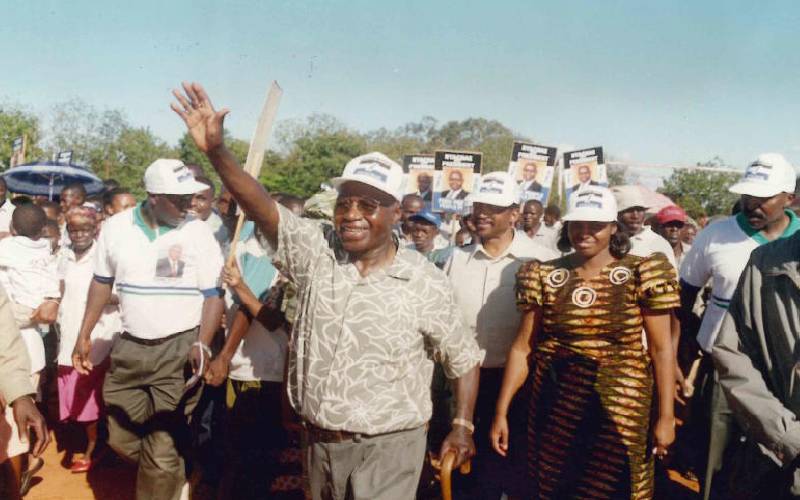×
The Standard e-Paper
Fearless, Trusted News

Ford-People presidential candidate Simeon Nyachae during a rally at Voi Stadium in November 2002. [File, Standard]
When Simeon Nyachae retired from the civil service as chief secretary at age 55 on February 6, 1987, his intention was to focus on managing his vast business empire.